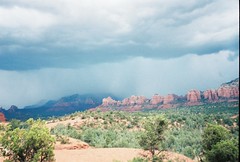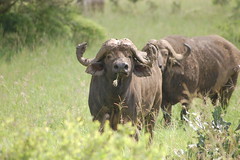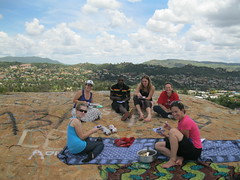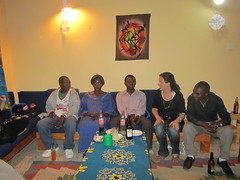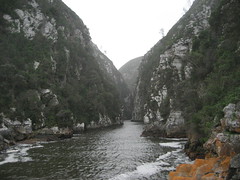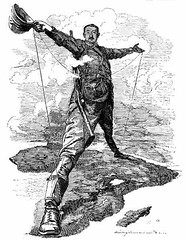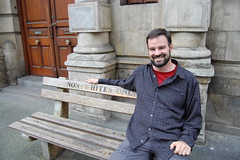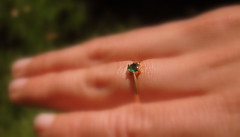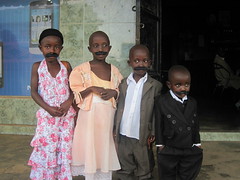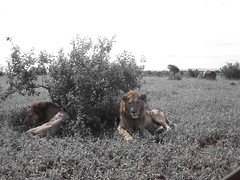| The three of us go to Amboseli National Park |
Even though I made every key decision along the way, daily I am surprised when I step back and realize where where this path has taken me. The biggest surprise, without a doubt, is the baby. I never really wanted kids before. I like children, to be sure, but I also like giving them back to their parents. I'd looked at a lot of people around, and wasn't convinced that a massive lifelong responsibility would really improve the quality of my life. Objectively, the decision to not have children isn't hard to understand. There is no doubt that kids are messy, expensive, and a constant drain of attention. I've lived my life in such a way where I would regularly reboot my life, in an exotic land, starting with little more than vague idealistic intentions. I could afford to take gambles like that, because at the end of the day the only person who pays the consequences is myself or another adult that simultaneously chose the same thing.
I moved around a lot of as a child, and was often the 'new kid' at school. And I don't feel bad about it, it was a remarkable childhood that helped me launch into a deliberate life spanning dozens of countries. That being said, I never really had a say in it. Several years ago, I had a friend who was thinking about moving and she talked about how she asked her 5 & 7 year old their vote on it. That struck me as ludicrous, why would an adult who understood the opportunities and challenges for the whole family share massive life-changing decisions with those who most certainly don't. I said as much, and she gave me a puzzled look. She thought it was ludicrous NOT to consult them, as it was their life too. That insight knocked me back, pretty far. A corollary of my 'Live Deliberately' creed is to actively support and encourage others to live their own lives deliberately. Apparently, I'd been operating under the assumption that 'live deliberately' doesn't apply to those under 18, which really doesn't make any sense.
Although I had never really considered having kids before, as this moral insight cut deeper into my thoughts and made up my mind for a child free life. For many years, I've been saying I want to live 'an exceptional life,' and carefully make my own decisions and whenever possible not let any others in a position where they could make them for me. I may be particularly sensitive around this issue, because I had so little say in how my childhood unfolded. This perspective has certainly doomed many wonderful romances, but it also freed me to figure out what I wanted in life and doggedly pursue it without having to ask permission. My family has long since come to terms with the fact that I will go anywhere in the world, and do whatever I want, without asking. In some cases, happily, I found people whose own life path kept us together. When my brother and I quit everything for an extended trip through Latin America we shared a tight bond. I found that bond stronger because I was secure in the knowledge that he was choosing his own path, that he also chose to travel together. There is a real and profound freedom in arranging ones life with only these kinds of relationships. I was wise enough to recognize that if I had a spouse, or a child, their deliberate life might not correspond with mine. Unless I wanted to develop a dictatorial, 'Father knows best,' personality (which just isn't in me) there would inevitably be compromises.
All that still makes sense to me, so I'm more than a little bewildered that I've now come to the opposite conclusion. Although Erin has long wanted a child, I shocked both of us when I told her I wanted one too. What happened is, the whole question got elevated to a another level. This, I think, deserves some exploration.
Although I've always enjoyed playing with little cousins, or tickling friends babies, children haven't been a significant part of my life. Few of my close friends have children, and I never made an effort to seek kids out, so I could easily go months without saying a word to a little person. That changed in Tanzania, quite a bit. Erin was working at a small school, IIS, and very quickly our lives started revolving the school. I started out the endeavor by substitute teaching 10 year olds, and found myself happily enmeshed in almost every school event. The school held regular events, from school plays to fundraisers, and they expected that the teachers, like Erin, would work them. Sometimes that got tiresome, when yet another Saturday night needed 'volunteers' it got frustrating. But then we'd try to figure out what else to do, it usually turned out that the school event was the most interesting thing happening. There is not a lot going on in a small town in rural southern Tanzania, so a Saturday night spent selling drinks to friends at a concession stand was better than the alternative of sitting at home surfing the internet (until the power went out). As I wasn't a teacher I didn't have to volunteer, but most of my friends were doing it, so otherwise I had little to look forward to but a lonely night at home.
Very quickly I realized that none of these parents had given up on their own exceptional lives to raise a family. Quite the opposite, in fact. We became close to a Finnish family with three kids who'd left their lives in the cold north to have a adventure in Africa. About half of the students were children of expats, and none seemed like they were being dragged around the world unwillingly. I remember being fascinated as a child by the animal pictures in my families encyclopedia, so I can only imagine what it'd be like growing up next to one of the largest national parks in Africa. None had X Boxes, but since no one did they didn't whine about spending most of their free time outside and exploring. Their childhood is pretty exceptional in it's own right. Although they had a lot more responsibilities, their parents didn't seem like they were sacrificing as much as choosing different exceptional experiences. Its true that none joined Erin and I on our shoestring Xmas trip around Malawi, including riding the back of pickups. But instead many piled everyone into the family car and went off to see the world. It's a different experience, to be sure, but I was no longer quite so certain that my way was the best, even for me.
| Most couples are 'nesting' when 6 months pregnant. We went to Egypt |
All of this came together, but it wasn't an instantaneous shift, it was long and slow with plenty of setbacks. But all the sudden, when I did one of my periodic 'what do I want out of life' gut checks I realized that the deliberately chosen life I wanted included progeny. There absolutely will be compromises I wouldn't choose if I was a bachelor, but that is inevitable in all deliberate decisions. Whenever I choose a new country to visit, I simultaneously don't choose all the others that I would also like to see. I probably can't have all the crazy Saturday nights on the town I've enjoyed so much, but the reality is they haven't been much of a priority for about half a decade. And for all the sacrifices, there will hopefully be a lot of rewards too. I can't wait until my daughter clobbers me in chess or squeals in delighted fright when she sees a herd of elephants. Giving those experiences up so that I can retain the freedom to drop everything and start over alone on a shoestring suddenly seems like the sacrifice.
I won't ever become one of those people that thinks everyone they know should have kids. The world already has more than enough babies and there is no doubt that many wonderful life paths never involve procreation. But if I could go back in time, I would try to soften my own resolve about the issue and would encourage others sharing my former perspective to consider what I've written. If you've got a partner craving kids, or are a confirmed bachelor that isn't quite ready to give up on the idea, it might be worth it to find some way to integrate children into your life for a while. Maybe you'll come around to where I'm at now, or maybe you'll learn for sure that you don't want your own. But either way, it not a deliberate life if you don't really consider what life isn't being chosen.
Then again, my plea for unsure people to integrate kids into their life probably has an agenda. In a couple months, I'm going to want babysitters!







